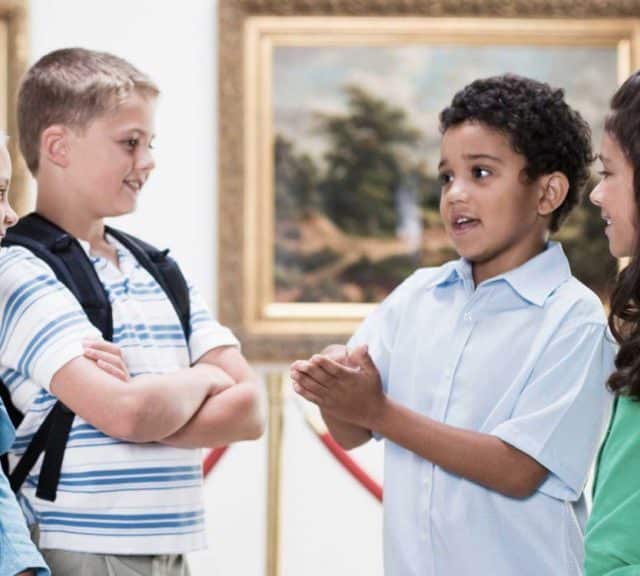
Being able to provide helpful feedback is an important social skill for children to develop. The ability to provide and accept feedback is critical in helping children develop and maintain friendships. Having thoughtful discussions about problems and possible ways to effectively address those issues also helps children develop the capacity to meet challenges that they experience in their day-to-day lives. To teach your child about how and when to give advice, practice using the strategies below.
Listen to the Problem
Teach your child to listen for details such as: who is having the problem; what the problem is; when the problem happens; where the problem occurs; why it is a problem; how it became a problem. Inform your child that once he/she has gone through these problem-solving steps to learn about an issue, he/she will be better informed and able to provide useful feedback.
Determine if the Other Person is Looking for Advice
Have a discussion with your child about the importance of determining the right time and place for advice. Talk about how sometimes people don’t want advice—they just want to talk about a problem to get it off their chest. Children can practice self-talk (statements we say or think to ourselves); such as, “I will listen to find out if my friend wants my advice or if he/she just needs to talk.”
Perspective Taking
Talk about role reversal with your child to help him/her understand the problem from the other person’s perspective. You can advise your child to put himself/herself “in the other person’s shoes.” Your child can practice the self-talk statement, “I will think about what I would do if I were in the same situation” to help with this.
Take Your Time
Ensure that your child understands the importance of thinking before speaking when giving advice. Talk about the fact that the other person is looking for help, and that it is best to think about what advice to give instead of blurting out the first thought that comes mind. Tell your child that this approach can assist him/her in providing advice that is appropriate and helpful.
Think about the Consequences of Your Advice
Make sure that your child understands the potential consequences of his/her advice. Tell your child that he/she needs to think about the consequences of the action he/she is suggesting. Your child can practice saying (aloud or silently), “I will think about whether my advice will help the situation or if it will make things worse” before giving any advice.
Stick to the Point
Remind your child that sticking to the point helps him/her to focus on his/her friend’s situation and a possible solution. Your child can practice saying (aloud or silently), “I will not ramble, go off topic, or start talking about my own problems when giving advice.”
Know that the Other Person May Not Take Your Advice
Tell your child to keep in mind that his/her advice is just an opinion of what the other person should do. The child needs to understand that after giving advice his/her friend will decide to do what is best for him/her in the situation.
Yours in Health,
New Horizons Wellness Services13333 SW 68th Pkwy,
Tigard, OR 97223
- https://g.page/newhws
New Horizons Wellness Services provides a true multidisciplinary approach to mental & physical health treatments for children, adults and families.
